Editor’s note: Here follows the third chapter of The Story of the Malakand Field Force: An Episode of Frontier War, by Winston S. Churchill (published 1898). All spelling in the original.
Chapter III: The Outbreak
Tantum religio potuit suadere malorum. – Lucretius
The historian of great events is always oppressed by the difficulty of tracing the silent, subtle influences, which in all communities precede and prepare the way for violent outbursts and uprisings. He may discover many causes and record them duly, but he will always be sensible that others have escaped him. The changing tides of public opinion, the undercurrents of interest, partisanship and caprice, the whirlpools of illogical sentiment or ignorant prejudice, exert forces so complex and numerous, that to observe and appreciate them all, and to estimate the effect of each in raising the storm, is a task beyond the intellect and industry of man. The chronicler of small things lies under even greater disabilities. He has fewer facts to guide his judgment, nor is it as easy to read small print as capital letters.
In an attempt to state the causes of the great tribal upheaval of 1897, these difficulties are increased by the fact that no European can gauge the motives or assume the points of view of Asiatics. It is, however, impossible to pass the question by, and ignoring the detail, I shall endeavour to indicate some at least of the most important and apparent forces, which have led to the formidable combination with which the British power in India has been confronted.
The most marked incident in the “Forward Policy” has been the retention of Chitral. The garrisons, the road, the tribal levies have made the tribesmen realise the proximity and the advance of civilisation. It is possible—even probable—that with all their love of independence, the majority of the inhabitants of the mountains would have been willing, until their liberties were actually curtailed, to remain in passive submission, soothed by the increase of material prosperity. During the two years that the British flag had floated over Chakdara and the Malakand the trade of the Swat Valley had nearly doubled. As the sun of civilisation rose above the hills, the fair flowers of commerce unfolded, and the streams of supply and demand, hitherto congealed by the frost of barbarism, were thawed. Most of the native population were content to bask in the genial warmth and enjoy the new-found riches and comforts. For two years reliefs had gone to and from Chitral without a shot being fired. Not a post-bag had been stolen, not a messenger murdered. The political officers riding about freely among the fierce hill men were invited to settle many disputes, which would formerly have been left to armed force.
But a single class had viewed with quick intelligence and intense hostility the approach of the British power. The priesthood of the Afghan border instantly recognised the full meaning of the Chitral road. The cause of their antagonism is not hard to discern. Contact with civilisation assails the ignorance, and credulity, on which the wealth and influence of the Mullah depend. A general combination of the religious forces of India against that civilising, educating rule, which unconsciously saps the strength of superstition, is one of the dangers of the future. Here Mahommedanism was threatened and resisted. A vast, but silent agitation was begun. Messengers passed to and fro among the tribes. Whispers of war, a holy war, were breathed to a race intensely passionate and fanatical. Vast and mysterious agencies, the force of which is incomprehensible to rational minds, were employed. More astute brains than the wild valleys of the North produce conducted the preparations. Secret encouragement came from the South—from India itself. Actual support and assistance was given from Cabul.
In that strange half light of ignorance and superstition, assailed by supernatural terrors and doubts, and lured by hopes of celestial glory, the tribes were taught to expect prodigious events. Something was coming. A great day for their race and faith was at hand. Presently the moment would arrive. They must watch and be ready. The mountains became as full of explosives as a magazine. Yet the spark was lacking.
At length the time came. A strange combination of circumstances operated to improve the opportunity. The victory of the Turks over the Greeks; the circulation of the Amir’s book on “Jehad”; his assumption of the position of a Caliph of Islam, and much indiscreet writing in the Anglo-Indian press, [Articles in Anglo-Indian papers on such subjects as “The Recrudescence if Mahommedanism” produce more effect on the educated native mind than the most seditious frothings of the vernacular press.] united to produce a “boom” in Mahommedanism.
The moment was propitious; nor was the man wanting. What Peter the Hermit was to the regular bishops and cardinals of the Church, the Mad Mullah was to the ordinary priesthood of the Afghan border. A wild enthusiast, convinced alike of his Divine mission and miraculous powers, preached a crusade, or Jehad, against the infidel. The mine was fired. The flame ran along the ground. The explosions burst forth in all directions. The reverberations have not yet died away.
Great and widespread as the preparations were, they were not visible to the watchful diplomatic agents who maintained the relations of the Government with the tribesmen. So extraordinary is the inversion of ideas and motives among those people that it may be said that those who know them best, know them least, and the more logical the mind of the student the less he is able to understand of the subject. In any case among these able men who diligently collected information and observed the state of feeling, there were none who realised the latent forces that were being accumulated on all sides. The strange treachery at Maizar in June was a flash in the pan. Still no one saw the danger. It was not until the early days of July that it was noticed that there was a fanatical movement in Upper Swat. Even then its significance was disregarded and its importance underrated. That a Mad Fakir had arrived was known. His power was still a secret. It did not long remain so.
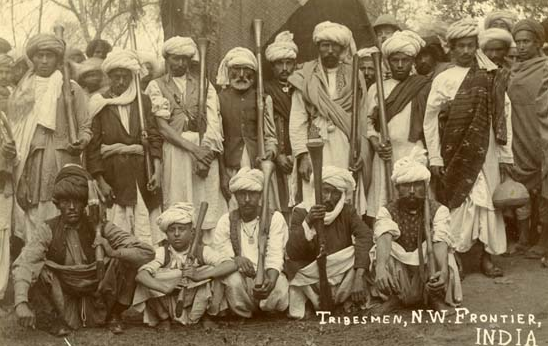
It is, thank heaven, difficult if not impossible for the modern European to fully appreciate the force which fanaticism exercises among an ignorant, warlike and Oriental population. Several generations have elapsed since the nations of the West have drawn the sword in religious controversy, and the evil memories of the gloomy past have soon faded in the strong, clear light of Rationalism and human sympathy. Indeed it is evident that Christianity, however degraded and distorted by cruelty and intolerance, must always exert a modifying influence on men’s passions, and protect them from the more violent forms of fanatical fever, as we are protected from smallpox by vaccination. But the Mahommedan religion increases, instead of lessening, the fury of intolerance. It was originally propagated by the sword, and ever since, its votaries have been subject, above the people of all other creeds, to this form of madness. In a moment the fruits of patient toil, the prospects of material prosperity, the fear of death itself, are flung aside. The more emotional Pathans are powerless to resist. All rational considerations are forgotten. Seizing their weapons, they become Ghazis—as dangerous and as sensible as mad dogs: fit only to be treated as such. While the more generous spirits among the tribesmen become convulsed in an ecstasy of religious bloodthirstiness, poorer and more material souls derive additional impulses from the influence of others, the hopes of plunder and the joy of fighting. Thus whole nations are roused to arms. Thus the Turks repel their enemies, the Arabs of the Soudan break the British squares, and the rising on the Indian frontier spreads far and wide. In each case civilisation is confronted with militant Mahommedanism. The forces of progress clash with those of reaction. The religion of blood and war is face to face with that of peace. Luckily the religion of peace is usually the better armed.
The extraordinary credulity of the people is hardly conceivable. Had the Mad Mullah called on them to follow him to attack Malakand and Chakdara they would have refused. Instead he worked miracles. He sat at his house, and all who came to visit him, brought him a small offering of food or money, in return for which he gave them a little rice. As his stores were continually replenished, he might claim to have fed thousands. He asserted that he was invisible at night. Looking into his room, they saw no one. At these things they marvelled. Finally he declared he would destroy the infidel. He wanted no help. No one should share the honours. The heavens would open and an army would descend. The more he protested he did not want them, the more exceedingly they came. Incidentally he mentioned that they would be invulnerable; other agents added arguments. I was shown a captured scroll, upon which the tomb of the Ghazi—he who has killed an infidel—is depicted in heaven, no fewer than seven degrees above the Caaba itself. Even after the fighting—when the tribesmen reeled back from the terrible army they had assailed, leaving a quarter of their number on the field—the faith of the survivors was unshaken. Only those who had doubted had perished, said the Mullah, and displayed a bruise which was, he informed them, the sole effect of a twelve-pound shrapnel shell on his sacred person.
I pass with relief from the tossing sea of Cause and Theory to the firm ground of Result and Fact. The rumours and reports which reached the Malakand of the agitation in Upper Swat and among the surrounding tribes were fully appreciated by the Pathan Sepoys of the garrison. As July advanced, several commanding officers were warned by their men, that great events were impending. Major Deane, the political agent, watched with great anxiety the daily progress of the fanatical movement. No one desires to be thought an alarmist, least of all on the frontier where there is always danger. At length, however, he felt compelled to officially report the disquieting signs. Warnings were then issued to the officers in charge of the various posts, and the troops were practised in taking up alarm stations. By the 23rd of July all had been informed that the aspect of affairs was threatening, and ordered to observe every precaution. But to the last everybody doubted that there would be a rising, nor did any one imagine that even should one occur, it would lead to more than a skirmish. The natives were friendly and respectful. The valley smiled in fertile prosperity. It was not strange, that none could foresee the changes a week would bring, or guess that in a few days they would be fighting for their lives; that they would carry fire and sword through the peaceful landscape; that the polo ground would be the scene of a cavalry charge, or that the cheery barbarians among whom they had lived quietly for so many months would become maddened and ferocious savages. Never was transformation of scene more complete, or more rapid.
And all the while the rumours of coming war grew stronger and stronger. The bazaars of India, like the London coffee-houses of the last century, are always full of marvellous tales—the invention of fertile brains. A single unimportant fact is exaggerated, and distorted, till it becomes unrecognisable. From it, a thousand wild, illogical, and fantastic conclusions are drawn. These again are circulated as facts. So the game goes on. But amid all this falsehood, and idle report, there often lies important information. The bazaar stories not only indicate the state of native opinion, but not infrequently contain the germ of truth. In Eastern lands, news travels by strange channels, and often with unaccountable rapidity. As July advanced the bazaar at Malakand became full of tales of the Mad Fakir. His miracles passed from mouth to mouth, with suitable additions.
A great day for Islam was at hand. A mighty man had arisen to lead them. The English would be swept away. By the time of the new moon, not one would remain. The Great Fakir had mighty armies concealed among the mountains. When the moment came these would sally forth—horse, foot and artillery—and destroy the infidel. It was even stated that the Mullah had ordered that no one should go near a certain hill, lest the heavenly hosts should be prematurely revealed. So ran the talk. But among all these frothy fabrications there lay a solemn warning.
Though the British military and political officers were compelled to take official notice of the reports received with reference to the tribal gathering, and to make arrangements for the safety of their posts, they privately scouted the idea that any serious events were impending.
On the afternoon of the 26th July the subalterns and younger officers of the Malakand garrison proceeded to Khar to play polo. Thither also came Lieutenant Rattray, riding over from Chakdara fort. The game was a good one, and the tribesmen of the neighbouring village watched it as usual in little groups, with a keen interest. Nothing in their demeanour betrayed their thoughts or intentions. The young soldiers saw nothing, knew nothing, and had they known would have cared less. There would be no rising. If there was, so much the better. They were ready for it. The game ended and the officers cantered back to their camps and posts.
It was then that a strange incident occurred—an incident eminently characteristic of the frontier tribes. As the syces were putting the rugs and clothing on the polo ponies, and loitering about the ground after the game, the watching natives drew near and advised them to be off home at once, for that there was going to be a fight. They knew, these Pathans, what was coming. The wave of fanaticism was sweeping down the valley. It would carry them away. They were powerless to resist. Like one who feels a fit coming on, they waited. Nor did they care very much. When the Mad Fakir arrived, they would fight and kill the infidels. In the meantime there was no necessity to deprive them of their ponies. And so with motives, partly callous, partly sportsmanlike, and not without some faint suspicion of chivalry, they warned the native grooms, and these taking the hint reached the camp in safety.
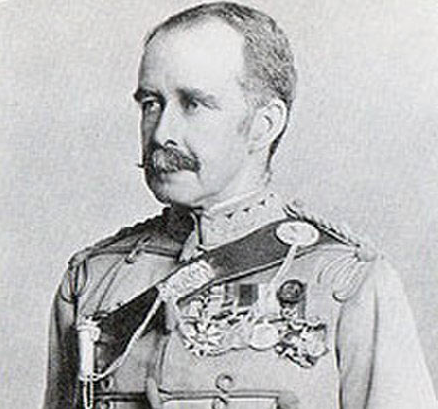
Late on this same afternoon Major Deane reported to Brigadier-General Meiklejohn, who commanded the Malakand garrison, that matters had assumed a very grave aspect; that a great armed gathering had collected around the Mad Mullah’s standard, and that an attack was probable. He advised that the Guides should be called up to reinforce the brigade. A telegram was immediately despatched to Mardan ordering them to march without delay. At 8.30 Lieutenant P. Eliott-Lockhart, who was the senior officer then with the regiment, received the order. At 1.30 A.M. they began their now famous march.
After sending for the Guides, the brigadier, at about seven o’clock, interviewed his different commanding officers, and instructed them to be prepared to turn out at any moment. Major Deane now reported that the Mad Mullah and his gathering were advancing down the valley, and recommended that the Amandara Pass, four miles away, should be held. General Meiklejohn accordingly issued orders for a movable column, to be formed as follows:—
45th Sikhs.
2 Cos. 31st Punjaub Infantry.
2 Guns No. 8 Mountain Battery.
1 Squadron 11th Bengal Lancers.
This force, under command of Lieutenant-Colonel McRae, 45th Sikhs, was to start at midnight and would be supported by the rest of the troops under command of the brigadier at 3 A.M.
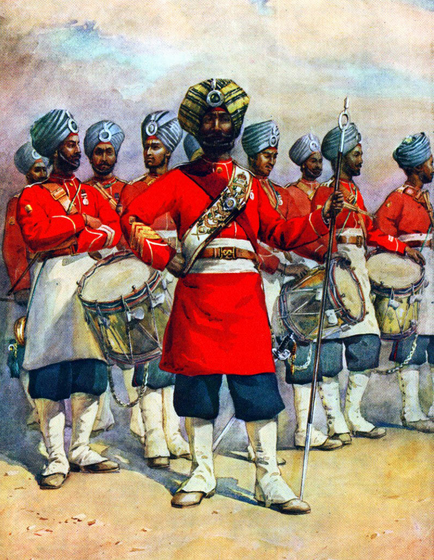
All preparations were swiftly made. At 9.45 a telegram from Chakdara—which got through just before the wire was cut—reported that large forces of Pathans were rapidly moving towards the camps. A quarter of an hour later a Jemadar of the Levies galloped in with the news that, to quote the official despatch: “The Fakir had passed Khar and was advancing on Malakand, that neither Levies nor people would act against him, and that the hills to the east of the camp were covered with Pathans.”
As soon as the officers had returned from polo, they found plenty of work waiting for them. Bandsmen and boys incapable of carrying arms had to be hurried up to the fort. Indents had to be made out for transport, rations and ammunition. There was much to do, and little time to do it in. At length all was finished, and the troops were in readiness for their early morning start. At 9.30 the officers sat down to dinner, still in their polo kit, which there had been no time to change. At 10 o’clock they were discussing the prospects of the approaching march, and eagerly weighing the chances of a skirmish. The more sanguine asserted that there would be a fight—a small one, it was true—but still a skirmish. Many of those who had never been in action before congratulated themselves on the unlooked-for opportunity. The older and more experienced regarded the matter in the light of a riot. They might have to fire on the tribesmen, but Swatis were such cowards that they would never stand up to the troops. Still it was a chance.
Suddenly in the stillness of the night a bugle-call sounded on the parade ground of the “crater” camp. Everyone sprang up. It was the “Assembly.” For a moment there was silence while the officers seized their swords and belts and hurriedly fastened them on. Several, thinking that it was merely the warning for the movable column to fall in, waited to light their cigarettes. Then from many quarters the loud explosion of musketry burst forth, a sound which for six days and nights was to know no intermission.
The attack on the Malakand and the great frontier war had begun.
The noise of firing echoed among the hills. Its echoes are ringing still. One valley caught the waves of sound and passed them to the next, till the whole wide mountain region rocked with the confusion of the tumult. Slender wires and long-drawn cables carried the vibrations to the far-off countries of the West. Distant populations on the Continent of Europe thought that in them they detected the dull, discordant tones of decline and fall. Families in English homes feared that the detonations marked the death of those they loved—sons, brothers or husbands. Diplomatists looked wise, economists anxious, stupid people mysterious and knowledgeable. All turned to have the noise stopped. But that was a task which could not be accomplished until thousands of lives had been sacrificed and millions of money spent.

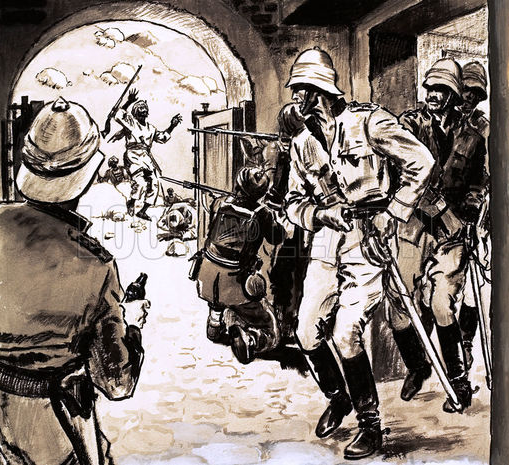


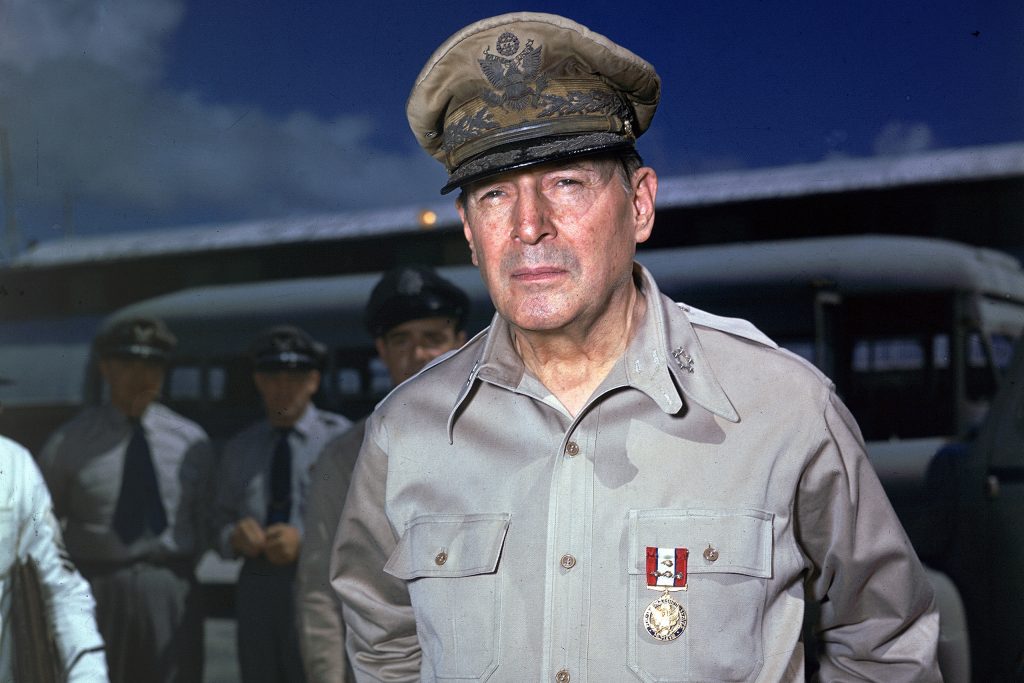





Appreciate the series.
When reading these older writings, some phrases stick out because of all the cultural implications of the choice of words:
> The forces of progress clash with those of reaction. The religion of blood and war is face to face with that of peace. Luckily the religion of peace is usually the better armed.
How corrupted our language that “religion of peace” is now applied to the one that is not. But also note the faith in progress, when we now see Progressivism consume itself.
4.5